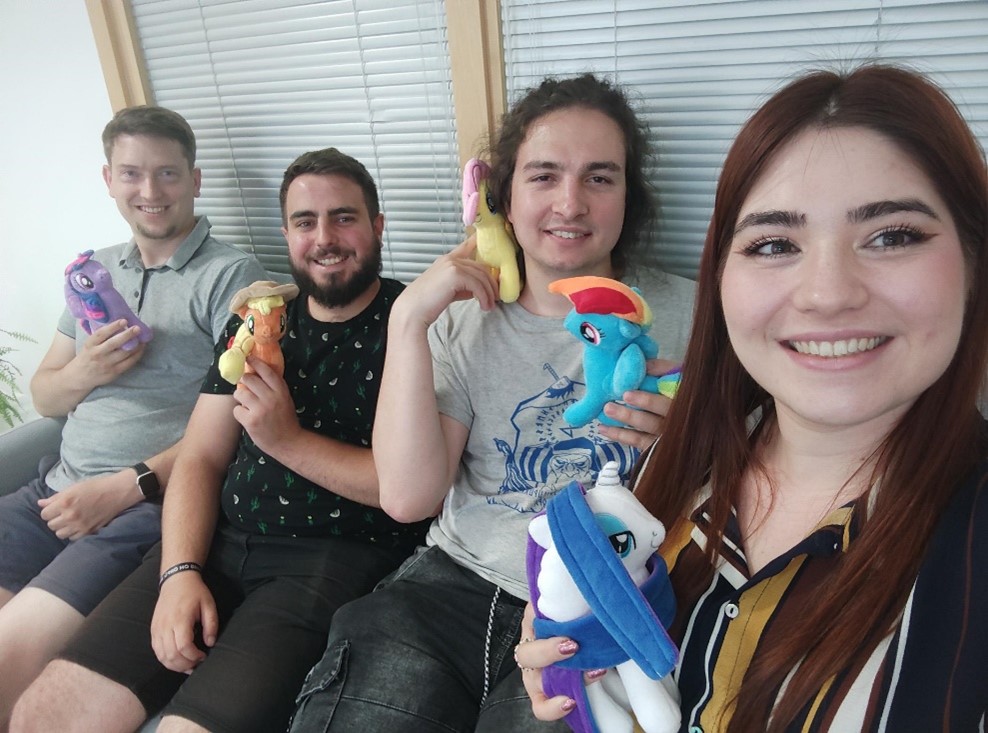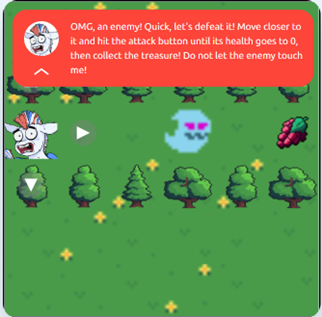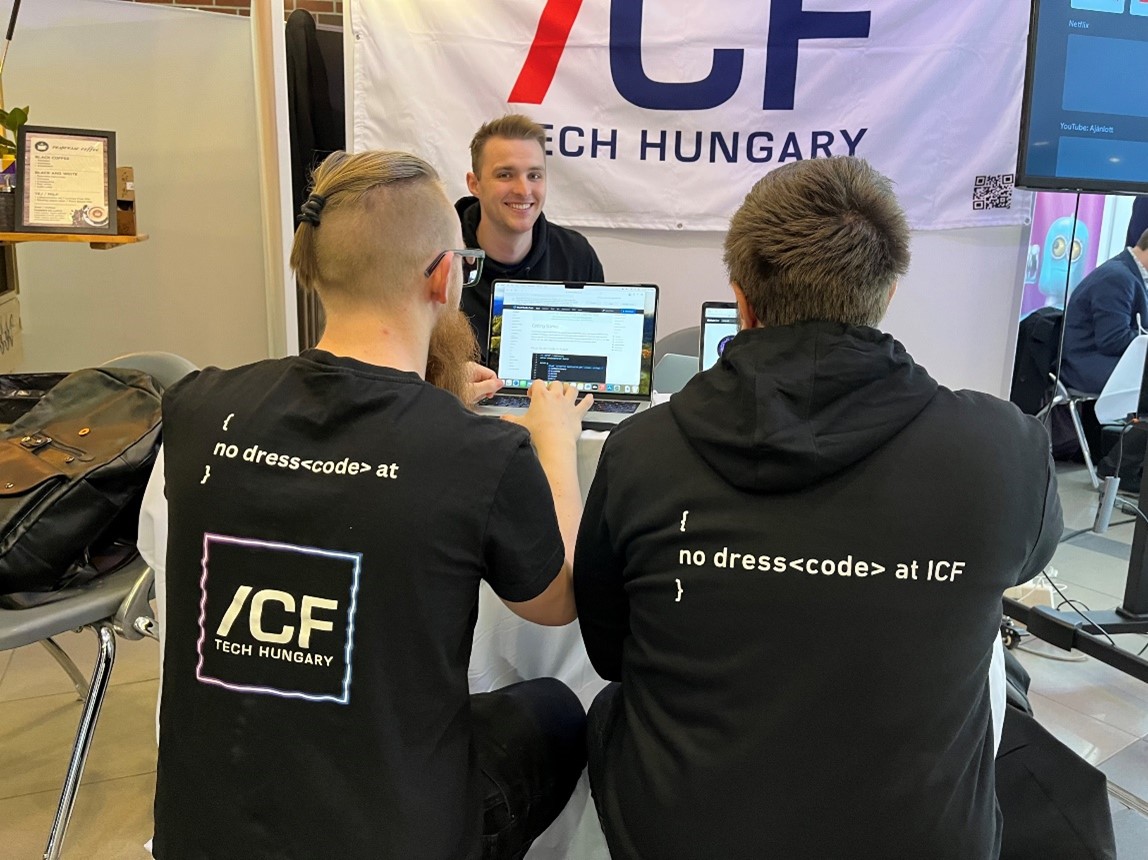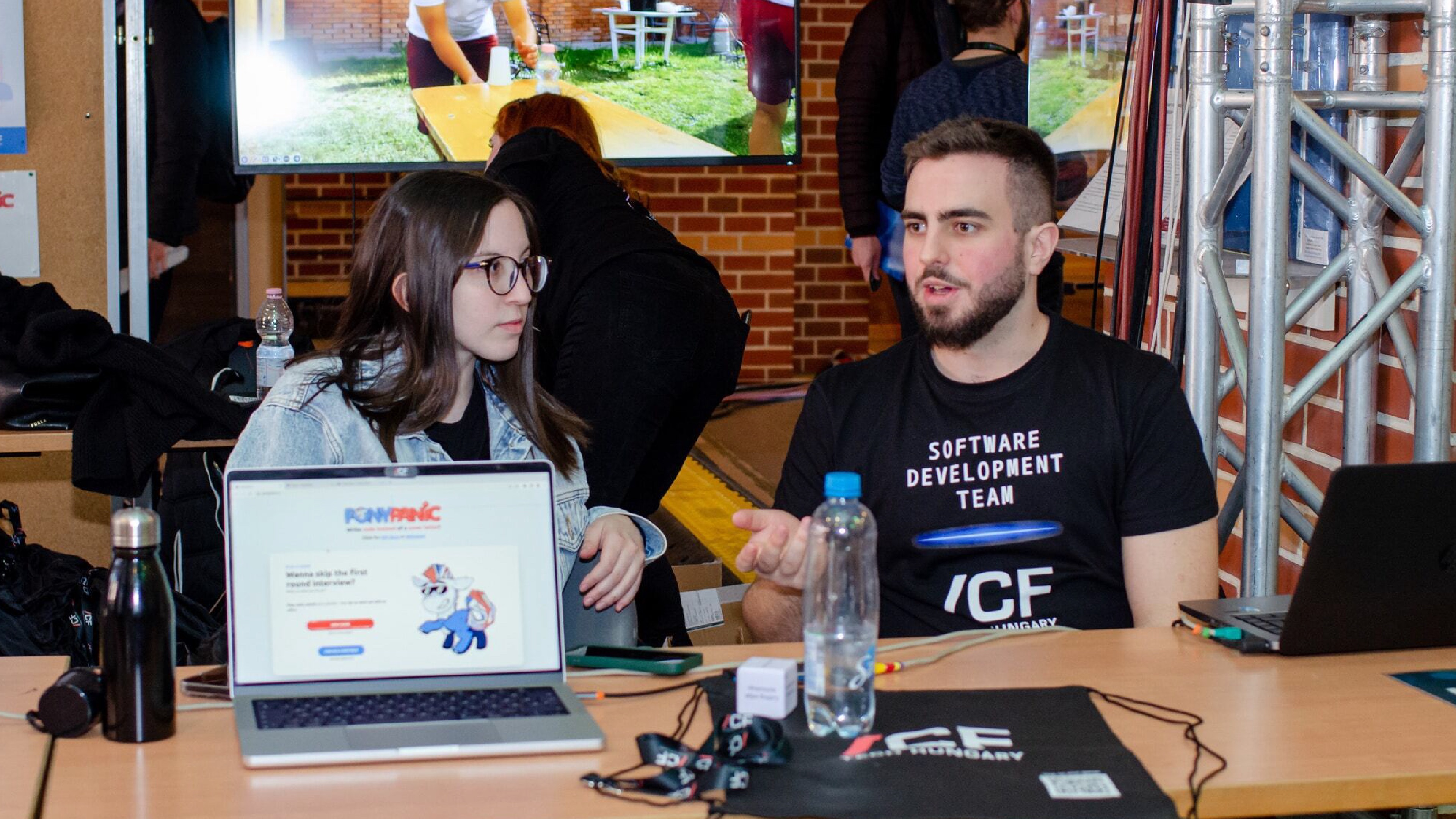ICF Tech Hungary is aiming to attract those who do not prefer the traditional selection process with an innovative solution.
We interviewed the creators of Pony Panic: Előd Sándor (Team Lead), János “Dzsáni” Gats (Engineering Lead), and Veronika “Vera” Pógyor (Junior Software Developer).
What was the origin of the idea? How did the game come to be developed?
Előd had previously researched various games on the market. The goal was to link the gaming experience with programming. When the idea was conceived, the team also recognized its potential for recruitment purposes, and HR supported the concept.
One criterion was the quick evaluation of submitted "tasks." Numerous ideas emerged, some more complex (API, AI, local). Ultimately, we chose Pony Panic because the game is easier to understand, and candidates can start playing with minimal guidance. Completing the first few levels does not necessarily require programming knowledge, making the game accessible to those whose studies or work are only indirectly related to programming. The game is played through an API, primarily because the company recruits software developers.
First, the Pony character was created and brought to life by our graphic designer. Then came the programming part, executed by Előd and Dzsáni with the support of two front-end colleagues. Vera coordinated the process as an HR professional, but later she changed her career path and started building her software development career path within the company.
It took about three months from planning to launch, though the team members were not solely focused on this project during that time.

The picture (starting from the left): Gábor Juhász, Előd Sándor, János Gats, and Veronika Pógyor
What exactly do you do in the game?
You have to guide the character Pony out of the maze while avoiding physical obstacles, defeating monsters, and collecting fruits. The maze was decided early on because it is easy to implement and understand. The concept is simple: guide something and collect items. The Pony character was intuitively chosen from an internal joke but can be replaced anytime. There were ideas to use something more related to the company's activities, but we abandoned these due to Pony's popularity.
The game has an end; at the maximum level, it does not generate larger mazes, although it could. There is a feature to make it endless. The time to save Pony depends on the number of enemies and rewards to collect. More experienced players can complete it in about an hour. There are multiple ways to solve a level. Higher levels have more terrain obstacles, which need to be considered (if not done earlier).

Screenshot of one level of the game
How did the game start? How was it welcomed?
The first live test took place at the BME Simonyi Conference in 2022. Of course, we wanted students to get to know ICF Tech Hungary better and convince as many as possible to apply. We combined this with a prize draw. This period was also the game's peak time, as it currently does not receive other advertisements. Reaching 200 players might initially seem small but given that our company mainly works with BProf students as interns, this is considered a good result. We are pleased to see that at the third conference, most students had already heard about us, and more people are becoming aware of our game.

ICF Tech Hungary at BME Simonyi Conference in 2024
Why did we start testing the game with students? They don’t have much reference or experience yet. If they can create the algorithm and research unknown problems, that’s a good point. This is not a boring or difficult test task. Many players stop at the 5th level because it can be played manually. After that, it needs to be automated and coded. Most of them reached levels 10-13. Levels 18-19 are considered very good; those players have invested a lot of time and effort into the task.
Some did not just use the maze solution as a trial task; frontend developers created alternative frontends. One, for example, presented a Zelda-themed solution, allowing us to customize the game to our style. Vera conducted a mini interview with the winners when handing out the prizes, a shortened version of which appeared on the company’s social media platforms. Players found the game interesting and fun and said it was a good idea to use it for recruitment.
What is the goal of the game?
Every company claims to work on unique and interesting products, but few can demonstrate this through an interview task or the entire selection process. Applicants appreciate it when we can convey this right from the start. This task allows us to skip part of the process because we can already map out the current knowledge of the submitter.
The game also develops programming skills because, whatever one does, they continuously improve. In this case, however, testing programming skills was the main goal. One student, who was studying to be a programmer, said this was the first high-level software application he had made. He also created a nice front end for it, so we know for sure that they learned from the game. Another resourceful student combined the prize draw with a school assignment, earning both a top grade and a Bluetooth speaker.
In this game, we can measure basic skills (e.g., sending an HTTP request to an API, authentication), making it suitable for pre-screening candidates. We can continue the selection process with those who submit better tasks. The game is not just for interns; it also works for more experienced software developers.
Gamification, while not a new concept, remains underutilized by many companies. Why might this be the case? What does incorporating gamification reveal about our company?
We think that many companies do not have the capacity due to numerous business goals, which is understandable. Some developers may think the game is unnecessary since we can measure their knowledge with a test task. They care less about a nice design and creative idea, whereas some more introverted developers might find it uncomfortable to start with an interview rather than a game. For them, if they are less inclined to speak, the game provides a good entry point and a less stressful introduction. We try to be inclusive with this approach.
We believe that it is very difficult to show what a company is like just through interviews. We want to showcase our values with this game, but we also think it will take time to spread.
We do not tie the mindset to age, but it is easier to convince young-minded candidates with such initiatives. Pony Panic is a new and creative solution for us to reach everyone, making the process exciting. We want to emphasize that we value quality work and do not aim for quick solutions and tight deadlines. We are professional but do not take ourselves too seriously.
Candidate experience is very important, and these memories can resurface years later. We also think long-term. If we cannot offer a job to the winners now, this relationship can still be valuable for both parties later. The best marketing is when players tell their friends and acquaintances about this experience.
What is the future of Pony Panic?
Our further plans include possibly advertising Pony Panic to measure whether the game or our career page is more popular. Additionally, we are brainstorming continuous improvements to make the game even more cooperative, connected with a leaderboard.



